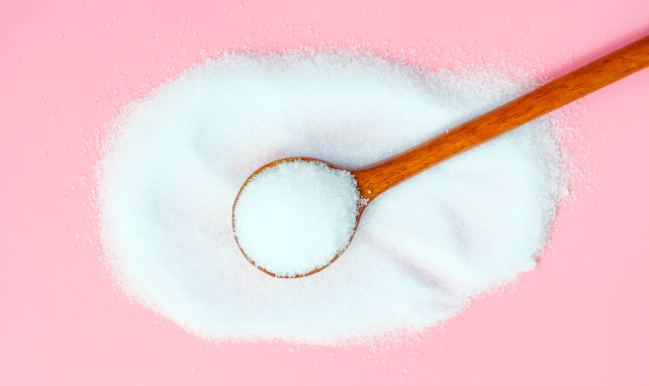
Erythritol, Heart Attack, Stroke
by John Elder
A provocative study has found that erythritol, an artificial sweetener, increases the risk of heart attack and stroke.
In the pilot study, 10 healthy volunteers consumed 30 grams of erythritol in a drink. Immediately, their risk of blood clotting was more than doubled.
The Cleveland Clinic researchers saw this happen in real time.
How? The sweetener made the platelets of these participants more active.
Platelets, or thrombocytes, are small, colourless cell fragments in our blood that form clots and stop or prevent bleeding.
Hence, in becoming more active, the risk of forming blood clots was raised.
This in turn can increase the risk of a major cardiac event.
The researchers are so convinced of their findings, that they believe “erythritol may not be as safe as currently classified by food regulatory agencies and should be re-evaluated”.
Erythritol is classified by the US Food and Drug Administration and the European Food Safety Authority as a GRAS (“generally recognised as safe”) ingredient.
This classification allows its use without restriction in food products.
What is erythritol?
Erythritol is an almost zero-calorie replacement for sugar in low-calorie and low-carbohydrate beverages, gum, and baked goods.
It’s apparently popular among people on the ketogenic diet.
Erythritol belongs to a class of compounds called sugar alcohols. Xylitol, sorbitol, and maltitol.
According to Healthline: Most sugar alcohols are found in small amounts in nature, especially in fruits and vegetables. Erythritol is produced through fermenting corn.
Because of the way these molecules are structured, they can stimulate the sweet taste receptors on your tongue.
However, erythritol appears to be quite different from the other sugar alcohols.
To begin with, it contains many fewer calories: Xylitol has 2.4 calories per gram, while erythritol has only 0.24 calories per gram.
Erythritol is about 70 per cent as sweet as sugar and is produced through fermenting corn.
Erythritol is different from other sugar alcohols.
Most of it gets absorbed into your bloodstream before it reaches your colon. It circulates in your blood for a while and is eventually excreted, unchanged, in your urine.
Erythritol is generally well tolerated in feeding studies, but can cause nausea and digestive issues for some people.
The new study
Senior and corresponding author of the new study is Dr Stanley Hazen, chair of Cardiovascular and Metabolic Sciences in Cleveland Clinic’s Lerner Research Institute.
He headed a previous study which revealed that “cardiac patients with high erythritol levels were twice as likely to experience a major cardiac event in the following three years compared to those with low levels”.
The study also discovered that “adding erythritol to patients’ blood or platelets increased clot formation”. These findings were confirmed by pre-clinical studies.
The new human study sought to “more directly observe the effects on platelets following erythritol ingestion at a dose typically contained in a ‘sugarless’ soda or muffin’’.
In 20 healthy volunteers, researchers found that the average erythritol level after eating increased more than 1000 times in the group that consumed erythritol compared to their initial levels.
Results also revealed participants showed a significant increase in blood clot formation after consuming erythritol, but no change was observed after consuming glucose.
Industry isn’t happy
The Calorie Control Council, an international association representing the low- and reduced-calorie food and beverage industry, essentially characterised the study as not being done in real-world conditions.
In an email to CNN, the council’s president, Carla Saunders, said: “Consumers should interpret the results of this pilot with extreme caution. The limited number of participants, a total of 10, were given an excessive amount of erythritol, nearly quadruple the maximum amount approved in any single beverage in the United States.”
Dr Hazen has shot back.
He told CNN that the 30-gram serving in the study in the study was “the equivalent of what is included in typical sugar-free sodas, ice creams or muffins, of which people often eat more than one”.




